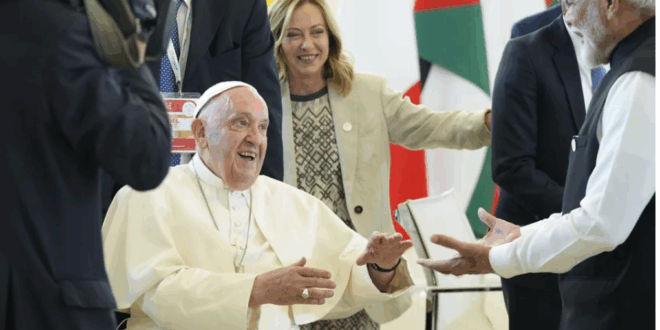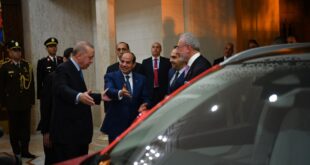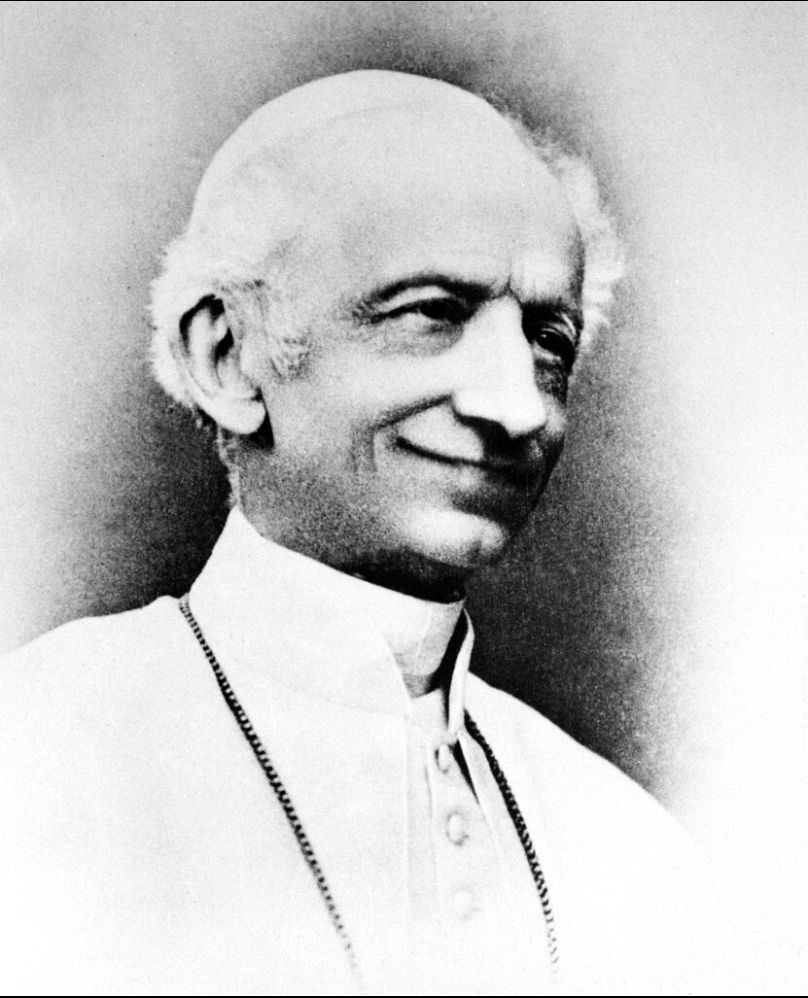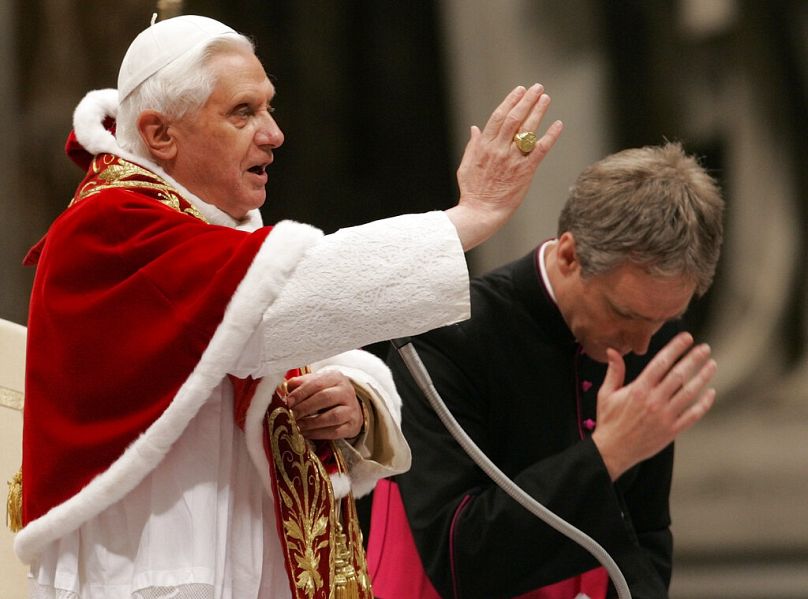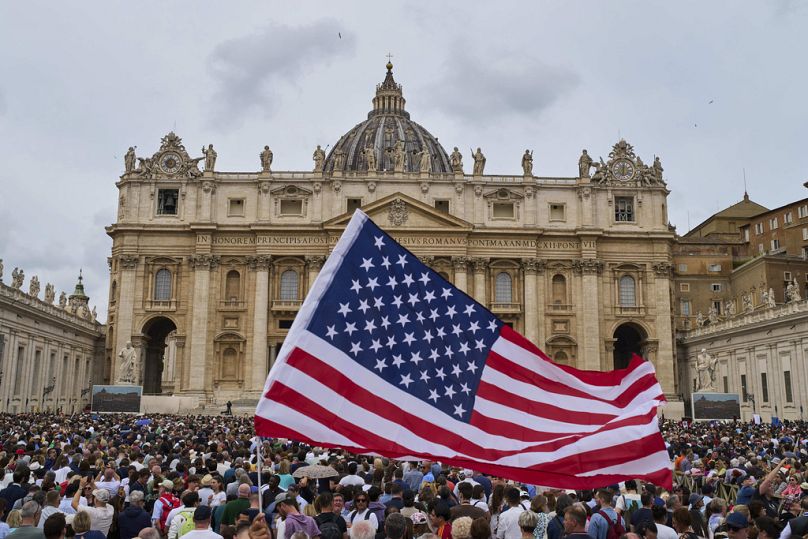Muhamad Yehia..Cairo
The first US pontiff in the Catholic Church’s history has spoken about his namesake Pope Leo XIII’s social policies, economics, and theological doctrines, which opened the Church to modernity in the late 19th century.
Numerous world leaders and more than 250,000 people will attend this Sunday’s inauguration ceremony of Pope Leo XIV, the first US supreme pontiff in the history of the Catholic Church.
The new Leonine era will begin, officially bringing to a close the pontificate of Pope Francis.
Thanks to his choice of pontifical name and his mathematical and legal training, Pope Leo XIV has awakened hope and curiosity among the faithful and the more secular world about the influence the Catholic Church could exert on the economic world during his pontificate.
For many observers and experts on Vatican affairs, Pope Leo XIV could bring doctrinal order to his predecessor Francis’ outbursts against poverty, which resulted from social injustice and environmental devastation
As the Holy Father said in his first address to the College of Cardinals last Saturday, “I thought of taking the name of Leo XIV for several reasons, however, principally because of Pope Leo XIII, who, with his historic encyclical Rerum Novarum, addressed the social question in the context of the first great industrial revolution,”
Pope Leo XIII propagated the encyclical Rerum Novarum in 1891. Historians regard it as the Church’s first step into modernity.
With Rerum Novarum, the Church called for workers’ rights without resorting to the class struggle promoted by Marxist doctrine, but through the balance of fair wages and equal economic relations.
Rerum Novarum laid the foundations of the social doctrine of the Church that inspired Catholic trade unionism, and some 30 years later, the creation of the Christian Democratic parties that contributed decisively to the civil and material reconstruction of Europe after World War II.
The social doctrine of the Church
For Ettore Gotti Tedeschi, banker and former president of the Institute for Religious Works (IOR) the great Vatican financial institution, Pope Leo XIII was “a prophetic pope” because the debate on the preparation of the new encyclical, which had begun a few years earlier, conditioned the ideas of the economic powers of the Belle Époque, especially the young United States in full growth.
“Pope Leo XIII questioned the concentrations of economic industrial power and was immediately attacked, but after six months the United States passed the Sherman Act on monopolies and elaborated the basis of antitrust agencies to regulate competition,” Gotti Tedeschi told Euronews.
The US administration passed the Sherman Act in 1890 to curb the power of cartels that had created a near-monopoly regime with serious social repercussions.
“Today the Church offers to all its patrimony of social doctrine to respond to another industrial revolution and to developments in artificial intelligence that bring new challenges for the defence of human dignity, justice and work,” the new Pope Leo XIV reminded the cardinals in his recent address.
The European Union and the public authorities of our time are measured against the dominant positions of the large US technological companies, aka Big-Tech, while economic data show growing economic crises and imbalances between average incomes and the cost of living on opposite sides of the Atlantic.
If the pontiff’s words have clarified the question of a new social doctrine of the Church, it is still unclear how the new pope will launch the evangelising action necessary to persuade the leading economic and political players of the value of a new encyclical on the social duties of capital.
A new missionary work in finance and high technology?
Will the new pontiff have to confront the great oligarchs as the Church fathers did with pagan princes and rulers in the first centuries of Christianity?
According to Gotti Tedeschi, “evangelisation in the world of finance that seems so indifferent or even needs to have certain values explained to it.”
“We need to reread Benedict XVI’s Caritas in Veritate, the encyclical of globalisation and technological progress”, Gotti Tedeschi said, drafted and amended during the debt crisis that shook Europe and the United States between 2008 and the early 2010s, the worst financial collapse since the Wall Street crash of 1929.
Gotti Tedeschi co-authored Caritas in Veritate with Pope Benedict XVI. In this encyclical, Pope Benedict XVI emphasised the importance of defining the economy and its ultimate goals, with a profound revision of the development models imposed by globalisation and digitalisation.
This work was continued and reinterpreted by Pope Francis, who, in addition to fighting economic injustice, also engaged with the topic of artificial intelligence.
In 2024, he gave a speech at the G7 summit in Italy, saying, “Artificial intelligence is a product of human creative potential, a gift from God”. He also spoke of “algoethics”, the morality of the algorithm.
“Pope Francis’ priority on artificial intelligence is that technology be understood for its social impact, since it represents a form of power that redefines relations between people,” Paolo Benanti, a Franciscan, a scholar of the ethics of technology and professor at the Pontifical Gregorian University, recently told Wired magazine.
Father Benanti was considered to be Pope Francis’ designated person on all AI matters, and is the only Italian member of the UN Committee on Artificial Intelligence, as well as chairperson of the Commission on Artificial Intelligence for Information of the Department for Information and Publishing of the Presidency of the Council of Ministers.
The new financial and doctrinal role of the US
Pope Leo XIV is the first US pontiff in the history of the Church.
His election in the Holy See has awakened hopes that the new pope can help fix the Vatican’s strained finances by attracting new dollars.
St Peter’s obolus is historically the financial lung of the Catholic Church, representing the flow of money from all the world’s alms.
“Fifty per cent of St Peter’s obolus traditionally came from the United States. From what I have read, St Peter’s obolus has plummeted to about 50% in the last decade,” Gotti Tedeschi said
“What can (Pope Leo XIV) do? Set about revangelising and reaffirming the truths that influence the Catholic world. In six months, he will balance the budget,” Ettore Gotti Tedeschi explained,* concluding that US Vice President JD Vance affirmed those truths and laid down his conditions in Munich last February, explaining, “reconfirm the values and we will be totally on your side.”
Pope Leo XIV seems to have sent messages that are, for the time being, both socially sensitive from an economic point of view and more traditional in terms of aesthetic or symbolic presence and the content of doctrinal values.
 موقع وجه أفريقيا موقع وجه أفريقيا هو موقع مهتم بمتابعة التطورات في القارة الأفريقية
موقع وجه أفريقيا موقع وجه أفريقيا هو موقع مهتم بمتابعة التطورات في القارة الأفريقية
